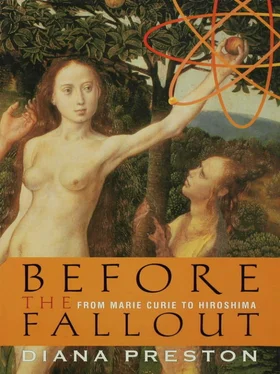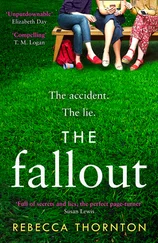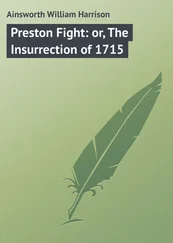Some have argued that by dropping the bomb more Japanese lives were saved than lost. They claim that Hiroshima gave the peace faction in the Japanese government the grounds for pressing for a surrender. In the words of General Marshall, the bomb provided an opportunity “to shock them into action” and “out of their determination to sacrifice great numbers of their people in futile further defense.” Keino Kido, the emperor’s confidant, said in an interview in 1966, “There was also a plus aspect to the atomic bombs and the Soviet entry into the war. I assumed at the time that if there had been no atomic bombs and the Soviet Union hadn’t joined in, we might not have succeeded in [making peace].” A senior Japanese officer saw the same two events as “in a sense heaven-sent blessings. This way we didn’t have to say we quit the war because of domestic circumstances.” Even Taro Takemi, Japan’s leading practitioner of nuclear medicine, who accompanied Professor Nishina to Hiroshima on 8 August to investigate the explosion, thought that the bomb might have had a beneficial effect. He later wrote, “When one considers the possibility that the Japanese military would have sacrificed the entire nation if it were not for the atomic bomb attack, then this bomb might be described as having saved Japan.”
All the above discussion assumes that no change was made in the Allies’ diplomatic position and, in particular, that they would have continued to insist on unconditional surrender. The reasoning behind their demand for unconditional surrender included avoiding any future claims (akin to those made by some Germans after the First World War) that Japan had not been defeated and thus allowing militarism to rise once more. Such fears were, however, a reason for insisting on occupation to make defeat unequivocal. They were not arguments against modifying the term unconditional surrender to make clear that the Japanese ruling house could be preserved in some form, as, in fact, happened.
The importance of the monarchy to the Japanese position was appreciated in Washington. Under-Secretary of State Joseph Grew, the U.S. Ambassador to Tokyo until Pearl Harbor, advised Truman on 28 May, “The greatest obstacle to unconditional surrender by the Japanese is their belief that this would entail the destruction or permanent removal of the Emperor and the institution of the Throne.” His opinion was backed up by several other government members. In a memo to Truman on 2 July about the drafting of a statement on surrender terms for the Japanese, Stimson advised, “I personally think… we should add that we do not exclude a constitutional monarchy under the present dynasty. It would substantially add to the chances of acceptance.”
Winston Churchill also suggested to Truman that he might consider whether unconditional surrender “might not be expressed in some other way, so that we got all the essentials for future peace and security, and yet left the Japanese some show of saving their military honor and some assurance of their national existence.” The Joint Chiefs of Staff in the United Kingdom and the United States were also sympathetic to such a clarification, suggesting the inclusion in the Potsdam Declaration of the following addition: “Subject to suitable guarantees against further acts of aggression the Japanese people will be free to choose their own form of government,” which, by implication, would include the continuation of the monarchy. Stimson had a final meeting on 24 July with Truman about the issue of the Potsdam Declaration and recorded the upshot in his diary: “I spoke of the importance which I attributed to the reassurance of the Japanese on the continuance of their dynasty and I had felt that the insertion of that in the formal warning was important and might be just the thing that would make or mar their acceptance…. I heard from Byrnes that they [Truman and Byrnes] preferred not to put it in.”
Because so many of the key Japanese documents, including the diary Emperor Hirohito is said to have kept since the age of eleven and his family correspondence, are still kept secret by the Imperial Japanese Household Agency, it is somewhat opaque as to whether the Japanese liberal faction would have felt strong enough to promote surrender before the atom bomb was dropped. They were fearful of a military backlash against any premature initiative leading to their own murder and the virtual imprisonment of the emperor. At the same time they were concerned not to allow domestic conditions to deteriorate to the extent there was a popular revolt against the throne.
Whether the Japanese accepted it or not, there seems no reason why, based on the knowledge they had at the time, the Allies should not have included in the Potsdam Declaration a concession on the ruling dynasty, if not the continuance of Hirohito’s own rule. If the Japanese had rejected it, the case for the deployment of the bomb would have been strengthened, not weakened, at no cost in human life.
The available sources contain no substantive information as to why Byrnes and Truman chose not to include such a concession, although it seems clear that the strongest opponent of doing so was Byrnes. It may be that the two men feared public criticism if they did so. An unpublished Gallup Poll in June 1945 showed that 77 percent of the U.S. public wanted the emperor severely punished. However, after the bombs were dropped, Truman and Byrnes were prepared to face the outcry at allowing the emperor to remain.
Perhaps conscious of the power of the new weapon, the two men disregarded other options to end the war. The Manhattan Project had a momentum of its own. General Groves described Truman as “like a little boy on a toboggan.” Some have suggested that the subsequent use of the bomb in combat validated in the minds of officials the amount of government resources spent on its development without specific congressional approval. They cite Stimson, who in 1947 wrote in Harper’s Magazine, “ At no time, from 1941 to 1945, did I ever hear it suggested by the President… that atomic energy should not be used in this war… on no other ground could the war-time expenditure of so much time and money be justified.” Truman and Byrnes were certainly also both conscious of the diplomatic advantage that the deployment of the bomb would give them in their difficult relationship with the Soviet Union and that its deployment might prevent Russian involvement in the occupation of Japan and the dictation of peace terms. This suggests that both momentum and the strategic diplomatic benefits played a part.
Neither reason is, however, sufficient to explain fully why Truman and Byrnes took no action to prevent a second bomb from being dropped so quickly on Nagasaki. The Manhattan team and the U.S. Air Force personnel on Tinian brought the drop forward by two days for operational reasons. Fat Man fell on Nagasaki on 9 August before the Japanese had time to respond to the Soviet invasion launched about the same time that the B-29 Bock’s Car carrying the bomb took off from Tinian. The American authorities in Washington, but presumably not the team on Tinian, had been aware of the Russian declaration of war issued at 5 p.m. (Moscow time) on 8 August and of the Soviet intention to invade Manchuria.
• • •
Another major “what if?” relates to the conduct of the German atomic bomb program. What if the key German scientists had been more committed to their work on an atomic bomb for Hitler? The question contains a major assumption that these scientists could have been more committed. There is considerable evidence for varying degrees of lack of commitment. Many—von Weizsacker, Heisenberg, Hahn, and Strassmann, for example—were not members of the Nazi Party when it was politic to be so. Hahn helped Lise Meitner to flee and met and corresponded with her thereafter. Strassmann, with Hahn’s knowledge, risked his life and that of his family to hide the Jewish pianist Andrea Wolffenstein. Houtermans got word of the German work on the atomic bomb out to the United States through Fritz Reiche. Even after being warned off by the Gestapo, Heisenberg made tentative attempts to help some of his colleagues.
Читать дальше












